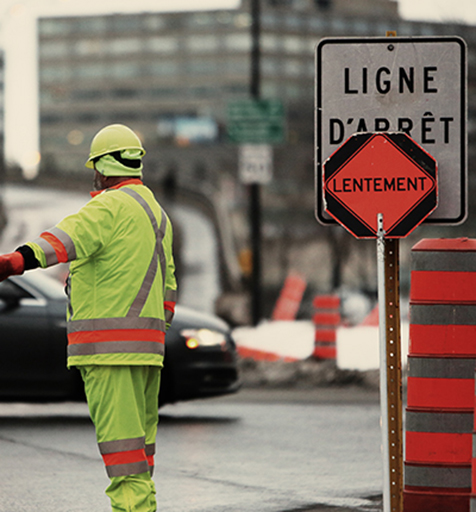Case Details
CORNELL GRACE DEFEATS SUMMARY JUDGMENT ON LABOR LAW 241(6) CLAIM IN NOTABLE DECISION FOR LABOR LAW PRACTITIONERS August 11, 2023
A worker sued Cornell Grace’s client, a construction manager, claiming he was injured in an unwitnessed accident in which he says he slipped on a patch of ice on the project site. Discovery revealed no other evidence of the alleged ice. The worker alleged violations under the New York Labor Law and moved for partial summary judgment as to liability under Labor Law § 241(6) based on the construction manager’s alleged violation of Industrial Code Rule 23-1.7(d) (relating to slipping hazards).
Cornell Grace opposed the worker’s motion, pointing out that he had failed to present any admissible evidence that someone within the chain of the construction project was negligent as to the alleged ice (i.e. caused, created or had any actual or constructive notice of any ice). The court agreed and, in a well-reasoned decision, re-affirmed the well-settled (but increasingly overlooked) principle that the violation of an Industrial Code provision is merely “some evidence of negligence,” and is not sufficient on its own to establish liability against a defendant under Labor Law §241(6).
Contrary to the position being advanced by plaintiffs ever more frequently in Labor Law §241(6) matters, the statute does not confer strict or “absolute” liability against the owner or general contractor of a construction project in the way that Labor Law §240(1) does. Labor Law §241(6) is a negligence-based statute. The statute requires proof of negligence as an element for liability – just not necessarily negligence by the owner or general contractor that is sought to be charged with liability. Rather, plaintiff must show that some entity within the chain of the construction project was negligent, and that this negligence was a substantial factor in causing the violation. Unfortunately, courts over the past few years have been persuaded with greater regularity to grant summary judgment for plaintiffs on liability pursuant to Labor Law §241(6) based merely on evidence of the existence of an Industrial Code violation, without ever even addressing the negligence element, much less making the necessary negligence finding as a matter of law. Those decisions are wrongly decided, and defense counsel should be keenly aware of this concerning trend.
We at Cornell Grace are very pleased to have achieved a great result for our client on this motion, and we congratulate our senior associate Bill Lamboley on his skilled preparation of the briefs in this matter. We also hope this decision will serve as a reminder to our colleagues to raise this argument, and to do everything possible to ensure that the judiciary is fully informed and reminded of the well-settled law pertaining to the negligence requirement under Labor Law 241(6).
The decision can be viewed by clicking this link: Decision and Order
CORNELL GRACE OBTAINS SUMMARY DISMISSAL OF THE CITY OF NEW YORK BASED ON IMMUNITY DEFENSE March 25, 2024
Cornell Grace is pleased to report a summary judgment and appellate win for its longtime client, the City of New York, in a high-value personal injury lawsuit. The case involved a plaintiff who, while training for a marathon, disregarded a “Don’t Walk” sign and was struck by a vehicle in the intersection of 9th Avenue […]
Learn moreCORNELL GRACE DEFEATS SUMMARY JUDGMENT ON LABOR LAW 241(6) CLAIM IN NOTABLE DECISION FOR LABOR LAW PRACTITIONERS August 11, 2023
A worker sued Cornell Grace’s client, a construction manager, claiming he was injured in an unwitnessed accident in which he says he slipped on a patch of ice on the project site. Discovery revealed no other evidence of the alleged ice. The worker alleged violations under the New York Labor Law and moved for partial […]
Learn moreCORNELL GRACE WINS SUMMARY JUDGMENT BASED ON ESPINAL AND CLIENT’S LACK OF DUTY TO PLAINTIFF IN 40-CAR PILE-UP April 11, 2023
Since 2017, Cornell Grace has been defending a subcontractor that was involved in a 40-car accident on the LIE as it was working to assist in cleanup after Hurricane Sandy. Multiple plaintiffs included the subcontractor as a defendant in their actions, even though it did not cause the accident and did not have any direct […]
Learn moreCORNELL GRACE WINS ADDITIONAL INSURED COVERAGE AND IMMEDIATE DEFENSE FOR CONSTRUCTION CLIENTS September 16, 2022
In 2016, Cornell Grace was retained to defend two of its construction clients, an owner and construction manager/general contractor, in a personal injury action brought by the employee of a subcontractor who claimed to have been seriously injured. The worker claimed to have tripped on a piece of electrical wire that appeared to have been […]
Learn moreCORNELL GRACE WINS SUMMARY JUDGMENT IN ELEVEN-YEAR MULTI-MILLION-DOLLAR INJURY CLAIM BY UNION ELEVATOR MECHANIC August 3, 2022
In a case filed in 2011, Plaintiff, a union elevator installation mechanic, claimed he was severely injured when he slipped on oil while unloading a thousand-pound jack from a delivery truck. Among other defendants, Plaintiff sued the elevator company that had loaded the heavy components onto the truck. After fighting for its client for ten […]
Learn moreCORNELL GRACE ACHIEVES HIGHLY FAVORABLE PRE-TRIAL RESULT FOR CONSTRUCTION DEVELOPER CLIENT IN FIRST PARTY INSURANCE DISPUTE WITH CARRIER July 6, 2022
In mid-2021, Cornell Grace, P.C. was retained by a New Jersey-based developer (“Developer”) that had just received a coverage disclaimer from its insurer, a large, well-known general liability carrier. The carrier had been defending Developer for more than two years in a high-value personal injury action arising out of a worksite injury to a subcontractor’s […]
Learn more
CORNELL GRACE WINS SUMMARY DISMISSAL OF TWO SUBROGATION ACTIONS THAT IMPROPERLY TARGETED CCIP/OCIP COVERED SUBCONTRACTORS May 19, 2016
The law firm of Cornell Grace, P.C. often represents owners, developers and prime/general contractors.
Learn more
Cornell Grace Wins Summary Judgment For City In Case With Important Implications To Limiting Labor Law In Street Repairs, Prior Written Notice, And Notice Of Claim Requirements March 21, 2013
This decision has major implications in limiting Labor Law claims in street defect cases.
Learn more
Cornell Grace Wins Appeal In Case Implicating Workers Compensation Bar To Suing Employer, And Summary Judgment Dismissal Of Labor Law Claims Since Plaintiff Was Not A Construction Worker February 13, 2013
Plaintiff claimed injury from an alleged trip over construction materials.
Learn more
Cornell Grace Wins Summary Declaratory Judgment Of Additional Insured Status For Major General Contractor In Catastrophic Labor Law Claim December 2, 2012
One of Cornell Grace’s specialties is insurance coverage litigation.
Learn more
Cornell Grace Wins Summary Judgment In $2.9 Million Interference With Contract Case Against Educational Services Provider January 17, 2012
The law firm of Cornell Grace, P.C. won summary judgment on behalf of its client.
Learn more
Cornell Grace Wins Defense Verdict In Multi-million Dollar Kings County Labor Law Claim June 10, 2010
Firm founder Janet O’Connor Cornell served as lead counsel throughout the five-year litigation.
Learn more


